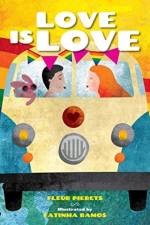av Fleur Pierets
169
This is a story that will touch the world and help people cope with grief and loss. A reminder of the power of love in the face of sickness and hatred.Belgian artist Fleur Pierets wanted to marry her partner Julian in all countries where two women are allowed to marry. The aim was to raise awareness of equal marriage rights in a positive way. But the 'world tour of love' was interrupted: after her fourth marriage, in Paris, Julian was diagnosed with an aggressive brain tumour. She died two months later. Pierets had only one thing left to do: write.Fleur Pierets and Julian P. Boom worked as an artist duo under the name JF. Pierets and created, among other things, the magazine Et Alors? On 20 September 2017, they launched their performance Project 22 in New York. Julian died on 22 January 2018.We could think of this book as the three strands of hair that form a braid that intertwine throughout the book: Love, LGBTQ+ activism and grief. First, Pierets tells the story of how they met, delves into their careers before they fell in love, and gives context to their intense relationship and collaboration. Then, we are at the centre of the memoir: a celebration of love, freedom, progress and, above all, the power of their commitment. It is about their magazine Et Alors? and their famous Project 22: to get married in every country where same-sex marriage was legal. They got married in New York, Paris, Amsterdam and Antwerp, while raising awareness of same-sex relationships. The last part is about Julian's illness and eventual death.Fleur writes about her grief and how she coped with the loss of her soulmate, describing her life with Julian with clarity and insight, making it easy for the reader to empathise with her feelings. Although this is not a sad book, tears are guaranteed. But there's also lightness, hope and, above all, the realisation that true love does exist. Her love for Julian is so palpable in every sentence that it's like a force of nature.JULIAN explores themes of love, commitment, activism, loss and grief. It is so tactile, you can feel its energy. It's a testament to the power of love in the face of illness and hatred. Pieret's writing is deceptively simple, very essay-like, yet full of heart. It is a lesbian version of Joan Didion's Year of Magical Thinking (Alfred A. Knopf, Inc., 2005).


